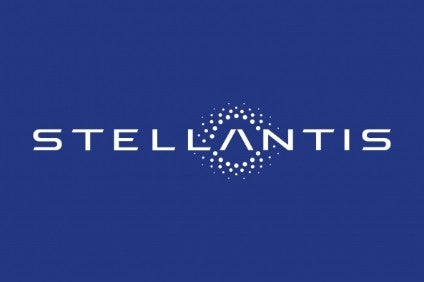
Stellantis NV last week announced plans to increase its stake in its Chinese joint venture with Guangzhou Automobile Company Group (GAC Group) as part of a renewed strategy of expanding its presence in the world’s largest vehicle market.
The Netherlands-registered automaker, formed following the merger between French carmaker PSA and Italian-American Fiat Chrysler, said it is looking to take majority control of its GAC-Stellantis partnership by increasing its stake from 50% to 75% as part of its “plan to set a new basis for its business in China”.

Discover B2B Marketing That Performs
Combine business intelligence and editorial excellence to reach engaged professionals across 36 leading media platforms.
The joint venture was originally established in 2010 between GAC Group and Fiat, producing vehicles at an assembly plant in the city of Changsha. Chrysler joined the partnership in 2013 following the merger between Fiat and Chrysler, with a new plant built in Guangzhou to produce Chrysler Jeep models.
The Changsha plant is now scheduled to be closed in March 2022 after Fiat sales disappointed over many years, leaving just the Guangzhou plant with a production capacity of some 140,000 vehicles per year. Sales of locally-produced Jeeps in China last year are estimated at just under 20,000 units, which is disappointing given the size of the Chinese SUV market.
Stellantis also has a joint venture partnership Dongfeng Motor Corporation, called Dongfeng Peugeot Citroën Automobile Company (DPCA), which the company said more than doubled its sales in 2021 to over 100,000 vehicles.
Stellantis said in a statement it has agreed with GAC Group to “collaboratively complete the relevant formalities of the deal, which remains subject to the approval of the Chinese government”.
But GAC Group is said to be “deeply” unhappy with Stellantis’ public announcement of its plans to increase a stake in their joint venture, particularly as they had not yet signed a formal purchase agreement. It did confirm it had carried out in-depth communication and negotiations with Stellantis on how to revitalize their joint venture, which it said has encountered “great difficulties” in recent years.
Separate reports suggest that this was also a misstep because the company had not yet received central government approval to increase its shareholding. The Chinese government in early January did let it be known that it now allows full foreign ownership of passenger car manufacturing companies in the country, starting from the beginning of 2022.
According to local reports, the Ministry of Commerce and the National Development and Reform Commission’s annual industry policy statement last month did not include passenger car manufacturing as an industry off-limits to foreign-owned companies. Until last year, the foreign ownership limit for vehicle manufacturers was stated as 50%.
Stellantis is due to announce a comprehensive business plan for China in early March 2022, when it releases its global strategic plan, which is understood to include bringing the Opel brand to China. PSA Group acquired General Motors’ Opel and Vauxhaul operations in Europe in 2017.
The group’s future Chinese strategy is expected to be heavily based on new energy vehicles (NEVs), China’s main automotive growth segment, particularly electric vehicles (EVs).
Gregoire Olivier, Stellantis China CEO, said told local reports in January “we are now finalizing our plans for China, which we consider as a strategic market in terms of untapped potential”.
In September 2021, Stellantis announced that it would create a simplified operating organization to develop the Jeep brand in China.
Stellantis said it and GAC “will continue collaborating closely with each other to grow the brand’s profitable business in China”.




